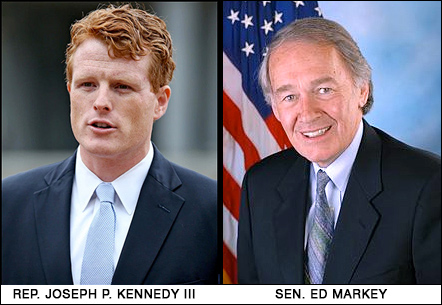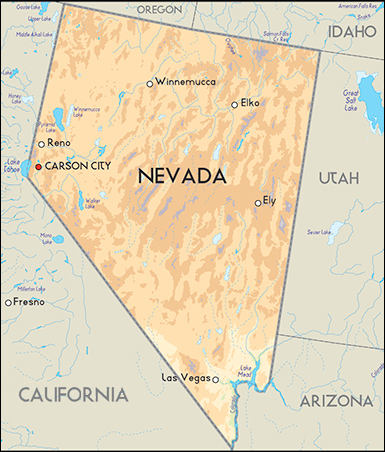By Jim Ellis
 May 11, 2020 — Many seasoned Massachusetts political observers believed that the intra-party Democratic US Senate battle between incumbent Ed Markey and Rep. Joseph P. Kennedy III (D-Newton) would never happen.
May 11, 2020 — Many seasoned Massachusetts political observers believed that the intra-party Democratic US Senate battle between incumbent Ed Markey and Rep. Joseph P. Kennedy III (D-Newton) would never happen.
At the beginning of the election cycle the prevailing local political wisdom was, if Kennedy were to enter the statewide race, that Sen. Markey would simply retire after spending 48 consecutive years in elective office, counting his time in the state legislature, US House, and Senate, rather than taking on a Kennedy and risk losing. Such, however, proved not to be the case. With the candidate filing deadline passing this week, the Sept. 1 showdown between Sen. Markey and Rep. Kennedy is on. And, the latest poll again confirms the two men are locked in a dead heat.
The University of Massachusetts at Lowell released their current survey results of the Bay State electorate (April 27-May 1; 1,00 registered Massachusetts voters, 531 likely Massachusetts Democratic primary voters) and the Democratic US Senate primary ballot test finds Rep. Kennedy clinging to a 44-42 percent lead. This is not much different than the university’s February poll that found Kennedy ahead 35-34 percent.
In all, this has to be a very encouraging result for Sen. Markey. Running against the so-called “Kennedy mystique,” the media-driven term that matters more in Massachusetts than anywhere else, and qualifying for the ballot because the courts reduced the number of required petition signatures because of the COVID-19 imposed precautions, Sen. Markey’s ability to hold his status within the margin of error against Rep. Kennedy has to be considered a victory for the veteran politician.
The money count is almost as close as the polling, except Markey has the advantage. Looking at the March 31 Federal Election Commission financial disclosure reports, Sen. Markey has raised just over $8.8 million for the campaign cycle as compared to $5.9 million for Rep. Kennedy. The senator also has the edge in cash-on-hand resources, $4.4 million to $3.8 million. Therefore, having enough funding to communicate their campaign message to the voters will not be a problem for either man.

 May 8, 2020 — The Silver State of Nevada, with six Electoral College votes, has been regarded as a swing state in most 21st Century presidential elections, but in projecting the 2020 vote, it is routinely considered as a place destined to land in the Democratic column. But, could Nevada ultimately be in play for President Trump?
May 8, 2020 — The Silver State of Nevada, with six Electoral College votes, has been regarded as a swing state in most 21st Century presidential elections, but in projecting the 2020 vote, it is routinely considered as a place destined to land in the Democratic column. But, could Nevada ultimately be in play for President Trump?


